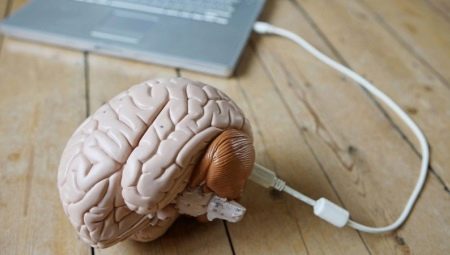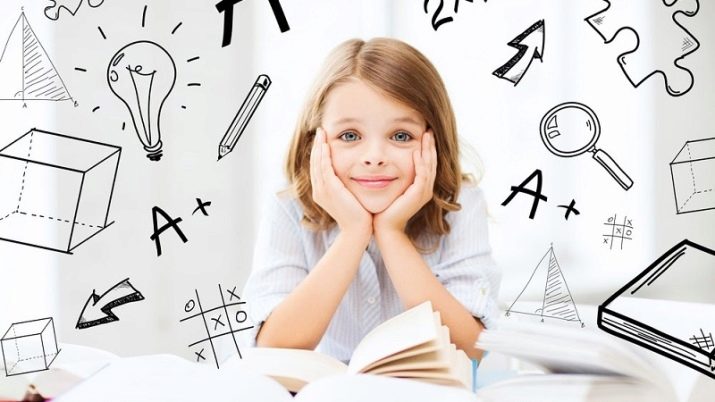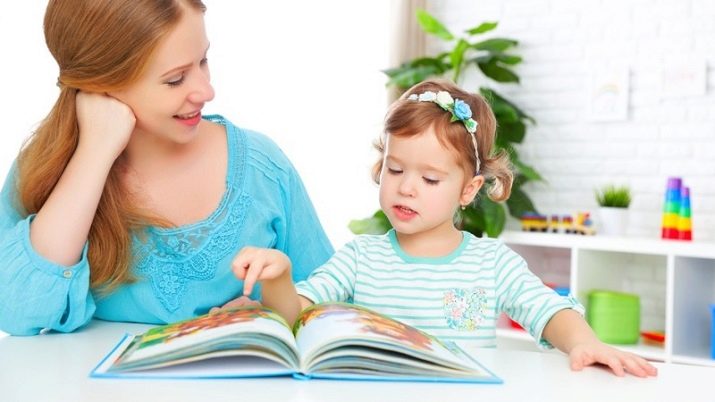Arbitrary memory: features and methods of development

"Get it out of your head, learn the multiplication table better!" Sometimes these requirements for a child cannot be met. They are not interconnected, since we store different information on different "disks" of our voluntary and involuntary memory. The first is responsible for so that we know the multiplication table, the second acts by itself and brings into our memory whatever it pleases - bright events, strong emotions, interesting images, brilliant ideas, and so on.
But our task is not to follow her lead and leave room for knowledge. They can only be obtained on purpose, using arbitrary memory.
Characteristic
The task of arbitrary memory is to record information received by its owner on purpose (memorizing the same multiplication table, for example). She helps us learn a poem, remember our address, passport data. Yes, in reality there are people who know them by heart, and sometimes it is actually quite useful.
However, such a memory begins to form at an age when it is still far from receiving the main document of a citizen. In psychology, it is believed that this happens in primary and secondary school, when the child has a conscious desire or need to learn (remember) something.
The development of voluntary memory involves many factors. Including what was laid in us at a very young age, even before school.

How it works?
The level of efficiency of arbitrary memory depends not only on what exactly we learn and why, but also on the methods we use to memorize. Who is not familiar with the state of the exam, when, going to it, we feel in full combat readiness, after all, behind is a day in the library, sleepless nights over textbooks, and receiving a card with questions, we fall into a stupor with an admixture of amnesia or, on the contrary, unexpectedly for ourselves we demonstrate the best sides of our arbitrary memory and get the highest score.
Of course, memory can and should be trained in adulthood, but, as you know, all problems come from childhood and this is what parents need to pay attention to so that their child does not face problems in adulthood.
- Try to get the child to take part in various games, ideally - periodically take the lead.
- Try to repeat with your child already experienced events, remember trips to the zoo or circus. Let the child tell how he remembered this or that animal or performance on the arena, which jokes of the clown seemed especially funny to him. Come back to this topic in a couple of days.
- Use word games more often. Just do not immediately "load" the baby with games in the "cities", "edible - inedible" is fine for a start. The presenter throws the ball to the participants and at the same time pronounces a word, the child's task is to catch the ball if something edible has been named and not to catch it if the name of an inedible thing has been pronounced.
- Do not force the child to cram something, try to evoke emotions in him, try to colorfully describe to him this or that object or event, so that not only the name, but also the images remain in his memory.
- Teach your child to understand what he is teaching.
- Explain to your child how and why the knowledge gained will be useful to him.

Functions
Arbitrary memory allows us not only to participate in the reading competition or competitions such as “What? Where? When?". The knowledge stored in our storehouse of the brain through voluntary memory is necessary both in professional activity and in everyday life. You don’t take out a cookbook every time you start cooking cabbage soup, do you? Do you get it? Then you just don't know how to cook them. Maybe you are an avid traveler? Has the knowledge gained and recorded by your arbitrary memory in school never helped you?
Hence - the obvious functionality of arbitrary memory, it is she who helps us to collect the baggage of knowledge.

Development features
Arbitrary memory formation ends by about 14 years of age. How successful this process turned out depends on how a person's life will proceed in the future. After all, it is voluntary memory that helps us to think logically, to draw conclusions. For its development, junior schoolchildren, namely at this age, have every chance to create fertile soil when the necessary information literally "grows in", there are many ways and techniques, including those listed above. But the main thing is to teach the child to work with information.
And for this you need to instill in him the following skills.
- Ability to highlight the main idea. To get started, try simply underlining what matters most in the text. It is also recommended to use various schemes, graphs, pictures in the learning process. Thus, you will call visual memory to help your voluntary memory.
- Ability to work with large amounts of information. Explain to your child not to be afraid of too many lines or numbers to remember. Teach them to break them down into logical chains, combine them in meaning, look for relationships.
- Repetition of the passed material. This should be done with an understanding of what you have learned. It is necessary not only to say out loud the memorized phrases or rules, but to ponder the meaning of what you are saying. By the way, it is the repetition of the information necessary for memorization aloud that helps to put it back in our memory faster and for a longer period.
- Work on bugs. This is not a whim of our teachers from the Soviet past.When a child corrects his own mistake, he memorizes the correct spelling of a word or formula. This will not only keep him from making similar mistakes in the future, but also make him work harder on the next assignment. Who wants to spend extra time on study, when children are playing football under the windows, and a beloved classmate has been “hanging” on the social network for a long time.
- Ability to compose an associative array. "Draw" new information to familiar material. As an example from the same Soviet childhood - a poem for memorizing the order of colors in a rainbow "Every hunter wants to know where the pheasant is sitting." Use these tricks to memorize information "inconvenient" for your brain.

And a few more tips to help make your free memory better for both children and adults.
- Concentrate on the task at hand... If you need to learn a poem, then you should not be distracted by how the fly sat on the jam, why dad (husband) climbed into the refrigerator, and what SMS came for.
- Sort the information you need by common or similar criteria... Yesterday you studied the structure of the skin, and today you are trying to remember the geographical position of Italy? Boots are made of leather, and Italy, if you look at it from a bird's eye view, is very similar to boots. Look for associations in everything.
- To memorize numbers, do the same. Instead of cramming, remember what associations this or that number evokes. For example, 1970 is the year of birth, 16 is the first love, and so on.
- Going to a new country, learn at least a couple of words in the language spoken there. It is even better to master a number of phrases that will allow you to exchange courtesies with the staff when checking into a hotel, order food in a restaurant. This will not only show respect to the locals, but also improve your memory.
By the way, the study of foreign languages, even by scientists, is recognized as a sure way to increase intellectual abilities. And we are striving for this, developing our brain and voluntary memory.









